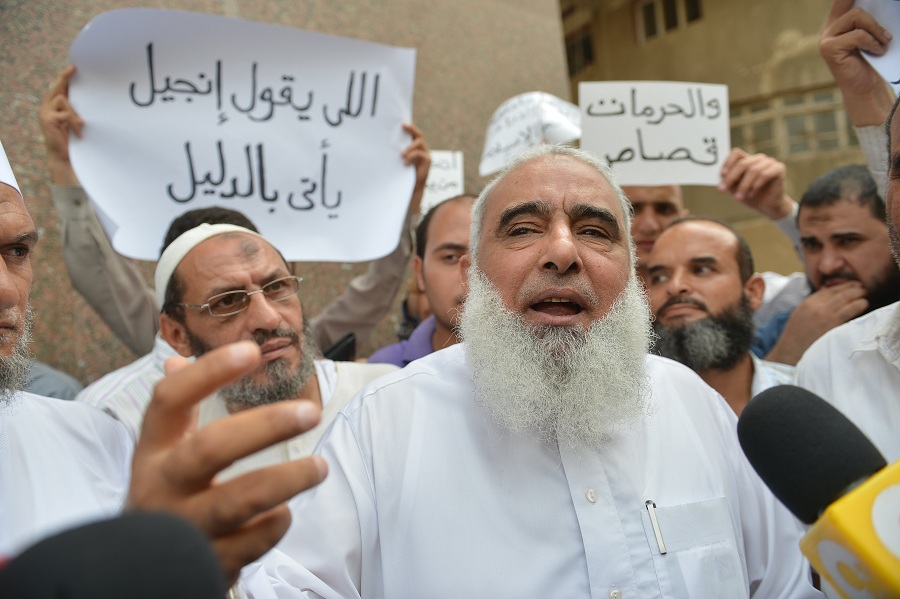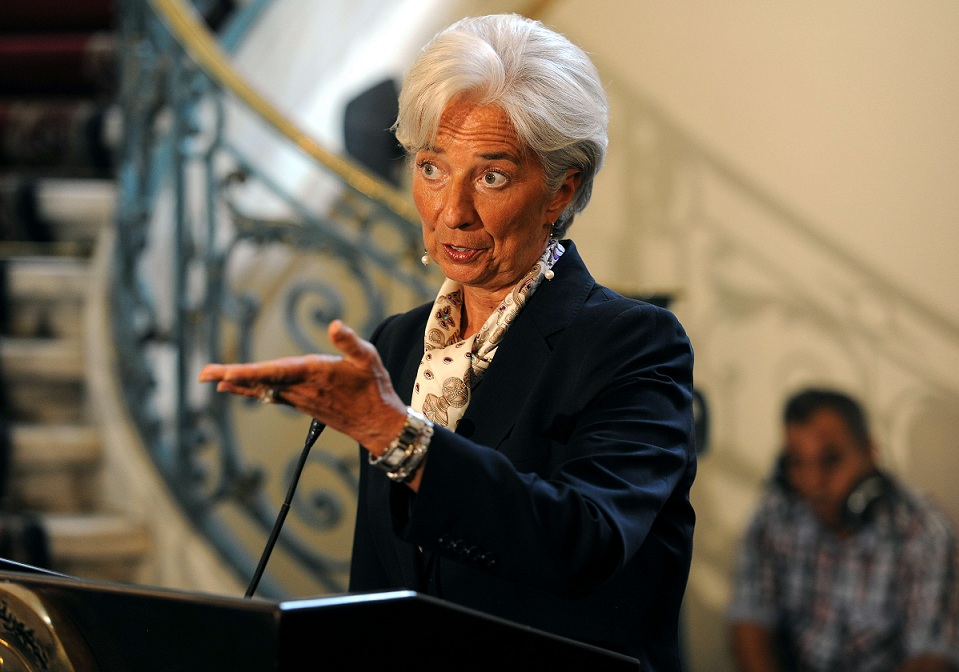
Last Friday, a small group of Palestinians protested near the Egyptian border, demanding the opening of the Rafah border. Their congregation ended uneventfully; however, it highlights a brewing crisis between post-Morsi Egypt and the Hamas government in Gaza that can easily explode any time soon. Moreover, Tony Blair, the special envoy of the Quartet on the Middle East arrived in Cairo on Monday in his second visit in 2014. The two events may not be directly related, but it is plausible that Gaza will be on the agenda of his meeting with Egyptian officials.
In 2008, a group of Palestinians blew up the wall separating the Egyptian Rafah side from the Palestinian side in protest of the isolation of the Gaza strip. Thousands of Palestinians streamed into Sinai, and stayed for several days before the Egyptian authorities took control and closed the border again. The incident was embarrassing to the Mubarak regime. It highlighted the Egyptian contribution to the siege of Gaza following Hamas’s takeover of the strip, and also exposed the vulnerability of Sinai to any trouble from the other side of the border.
Mubarak had to back off and ease the siege “a bit”, and turned a blind eye to the growing network of tunnels underneath the border. He wanted Hamas to be confined within certain red lines, in return for some viable breathing space. His policy worked, but at a hefty price of chronic deterioration of the security situation in Sinai.
The countless tunnels underneath the border have also changed the culture and the mindset of the local residents after years of earning easy money from the illegal tunnel trade. Many of tribal leaders and homeowners near the Gaza border have vehemently rejected an offer from the government to relocate and accept compensation. According to Hossam Sweilam, a retired army general, Rafah’s homeowners earn at least EGP 20,000 daily. Whether his estimation is true or not, it is clear that the tunnel owners have created a rentier-microstate that struggles to comply with the roles of the parent Egyptian state.
Despite the rejection, the Egyptian army seems determined to create a buffer zone along the border with Gaza in Rafah that would extend 300 metres in populated areas and 500 metres in open areas. General Sweilam has even stated that the construction of the buffer zone may take three stages and cover areas up to 1.5 kilometres from the border. He also asserted that there is another option, which involves the creation of a water barrier from the sea along the entire border between Gaza and Sinai.
Will the Islamic movement sit idly by while watching the Egyptian authorities slowly suffocating its lifeline? Of course not, but what can Hamas do to force the Egyptian authorities to change their minds?
Option one: Appeasement
There are some reports of possible rapprochement between Hamas and its archenemy Mohamed Dahlan. In January, Hamas allowed three Fatah leaders loyal to Dahlan to return to Gaza. The Fatah returnees and Hamas officials allegedly formed a committee to oversee construction of a new Gaza town to be funded by the UAE. Hamas indeed needs this Gulf support, but it also needs a Palestinian figure with a good relationship with Egypt’s army chief Sisi, and Dahlan could be that person.
If Dahlan is definitely back into the complex Gaza scene, then his goal will be to find a solution that stops the suffocation of Gaza, while satisfying the Egyptian authorities’ security interests. This task is not impossible; nonetheless, it would be costly to the Palestinian militant group that has controlled Gaza since 2007. It remains to be seen if Hamas and their dance with Dahlan will be enough to appease the Egyptians, or will the old hostility ruin this ambitious move.
Option two: Provocation
Last Friday’s demonstration by the Egyptian border was small and peaceful. Hamas has the ability to orchestrate a bigger, and possibly violent, protest in the hope of forcing the Egyptian authorities to suspend the buffer zone project. In any future protests, any casualties among the Gazans or their supporters from the Sinai tribes would be the worst possible nightmare for the Egyptian army, and can force the Egyptian authorities to put their ambitious plan for a buffer zone on hold.
However, provocation will be a gamble from Hamas, as casualties resulting from any confrontation will probably be on both sides. The death of Egyptian soldiers can turn the already hostile Egyptian public opinion further against Hamas. There is already a court case filed in Egypt to designate Hamas as a terrorist organisation, and any clashes at the border will almost certainly make a “yes” verdict certain. This would close the door for any possible behind-the-door negotiations.
It is possible that Hamas may a dual policy of appeasement and provocation in a cat-and-mouse game with the military-led authority in Egypt. The militant group understands its vulnerability, but will try its best to use all the cards available in its quest for self–preservation.
Regardless of how Hamas will react, and what Tony Blair’s input (if any) to the entire Gaza conundrum, it is interesting, and frankly alarming, that many in the corridors of power in Cairo seem to think that Egypt can get rid of Hamas at some minimal cost. Rather than crushing Hamas, Egypt can take some measures on its side of the border that eases tensions with Gaza. Egypt can work on two fronts: on one hand, it can increase the opening hours of the formal border crossing between Egypt and Gaza and help with exporting more vital goods to the impoverished strip. And on the other hand, it can de-escalate and renegotiate with Sinai tribal leaders, to create a cohesive plan that includes damage compensation and a long-term supportive plan.
The years-old dystopian dynamics between Gaza and Sinai, with its corruption, radicalism and rentier economy, will not be reversed easily. Further, drastic security measures alone will not solve these chronic problems. There are other measures that Egypt can adopt to win the support of the communities on both sides of the border; hostility against Hamas, and/or relying on Dahlan is not one of them. Egypt needs to resist the temptation to become involved in Gaza’s political swamp.




